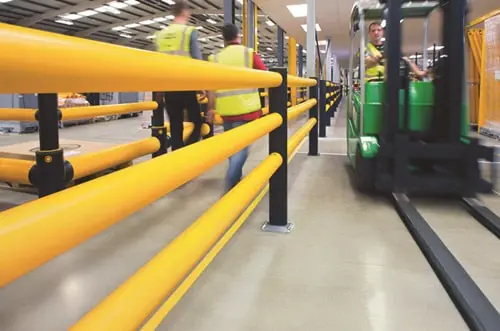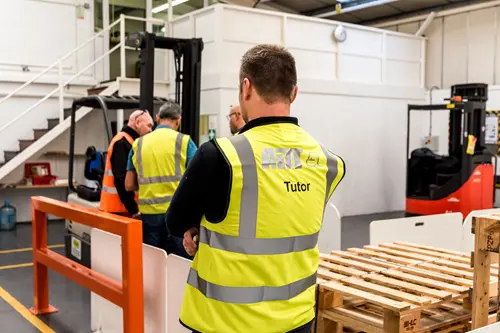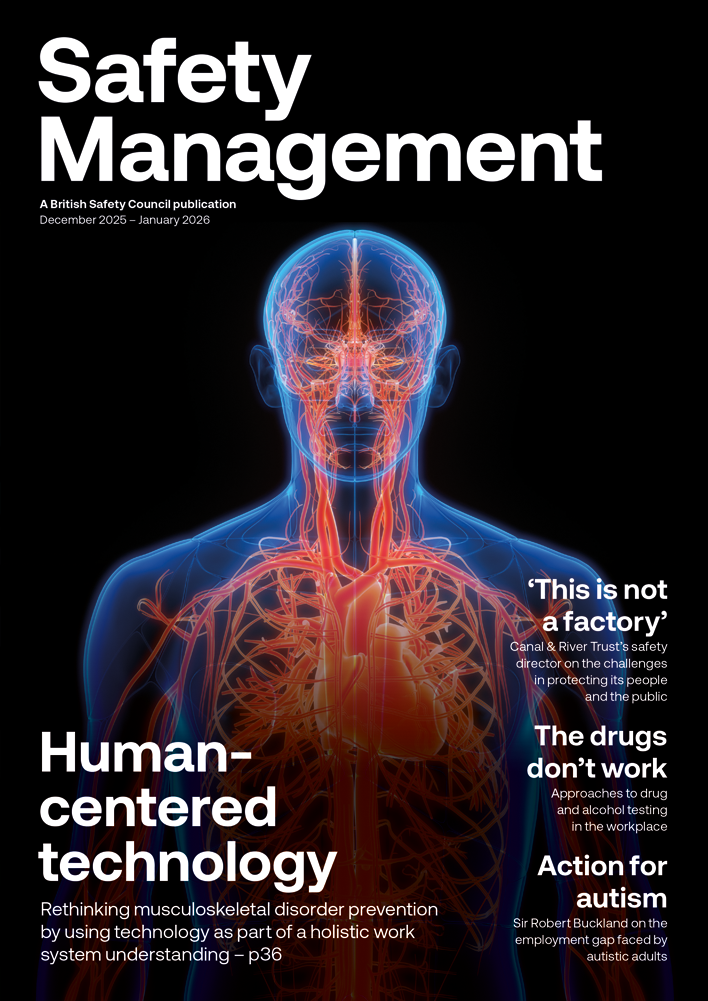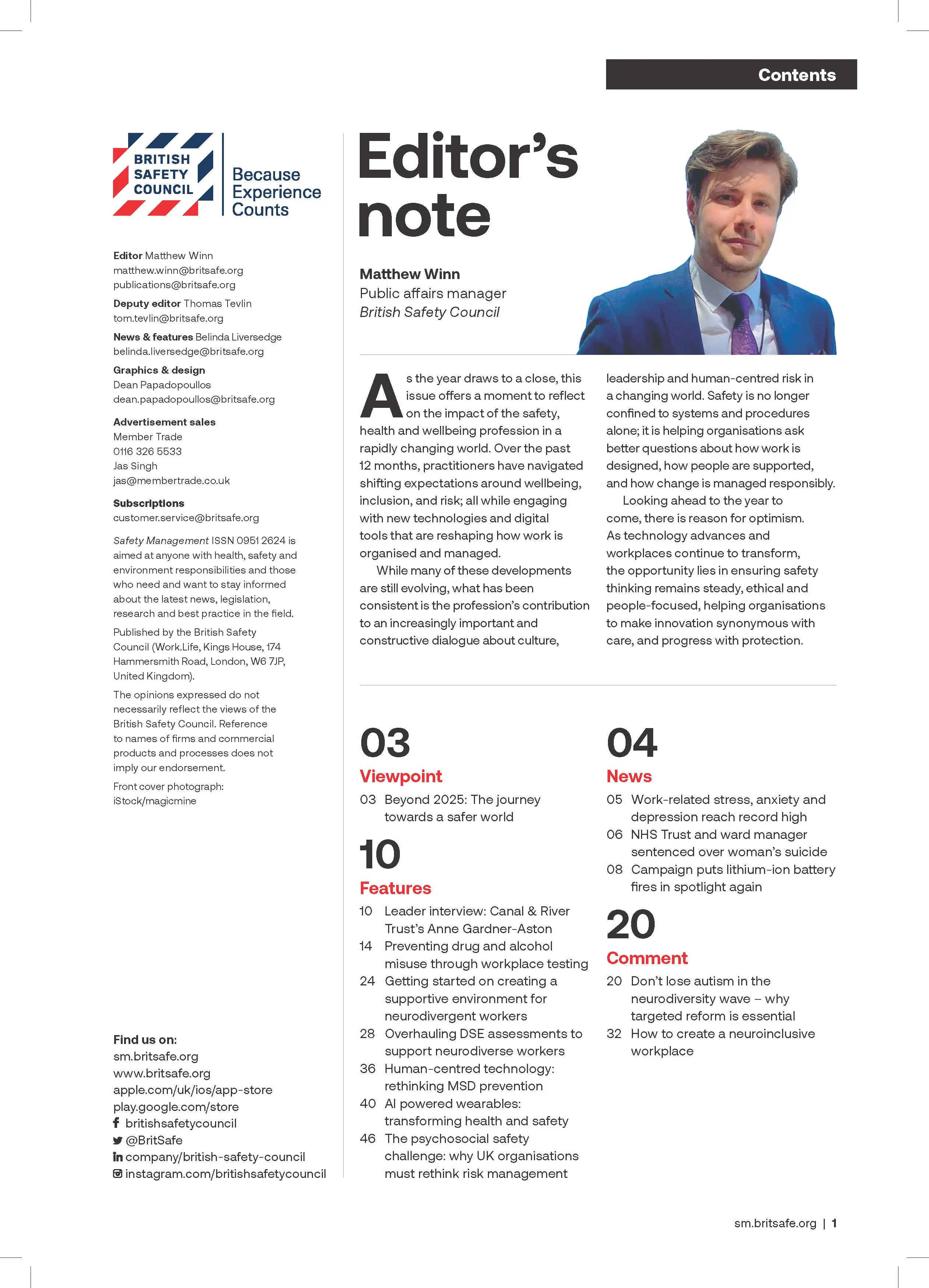National No Smoking Day on 9 March is a great opportunity to educate staff about the benefits of quitting, but should always form part of a wider and ongoing wellbeing programme.
Features
Kicking smoking into touch
With National No Smoking Day on 9 March, most responsible employers – and those in charge of employee health and wellbeing/wellness programmes – will see this as an opportunity to extend support to colleagues who smoke, to help them to make positive changes. And rightly so. At Allen Carr, we champion anything that encourages smokers to achieve positive behaviour changes and over 35 years we’ve helped more than 50 million people worldwide in their attempts to stop smoking.
 Smokers already know that it is unhealthy, costly and often anti-social to smoke. Photograph: iStock
Smokers already know that it is unhealthy, costly and often anti-social to smoke. Photograph: iStock
However, while awareness days can be a good prompt or reminder, many smokers are put off by the concept which they can interpret as judgemental, invasive, or ‘preachy’. Indeed, for maximum effectiveness, employee wellbeing should be addressed through a carefully planned, year-round strategy, that is not limited to approaches like a once-a-year campaign on quitting smoking. For instance, workers often benefit from (and genuinely welcome), well-thought-out support and inspiration at work aimed at helping them to improve their health, such as by maintaining a healthy weight, exercising more often and reducing alcohol consumption.
As a leading authority on addiction, self-help and personal development, at Allen Carr’s Easyway we have seen a distinct change in the way employees respond to company health initiatives as we have moved through the pandemic. This means employers need to be flexible in the way they support staff. Restrictive, prohibitive or demanding messaging and policies around worker wellbeing (including stopping smoking), will not garner the intended positive response. To change any negative behaviours around their personal health, employees need to feel genuinely encouraged and supported and some will want and prefer to engage with an employer’s initiative on a confidential basis.
The impact of Covid-19 saw negative behaviours, such as smoking, drinking, gambling, overeating, sugar and carbohydrate addiction, increase over lockdown. And the effects of this will be felt in the workplace for several years to come. For example, we may see a potential decline in workers’ general physical and mental health affecting their overall contribution and performance at work.
 John Dicey: "At Allen Carr’s Easyway, we instead focus on the reasons why people smoke, rather than why they shouldn’t."
John Dicey: "At Allen Carr’s Easyway, we instead focus on the reasons why people smoke, rather than why they shouldn’t."
With many people now starting to return to the physical workplace, I would suggest that rather than restricting messaging on the benefits of good health to one-off campaigns like National No Smoking Day, employers should have a wider, ongoing and open discussion with staff about the negative impact of poor health habits and how the business will always seek to support those who wish to make positive changes to their lifestyle. For example, although people who consume excessive amounts of alcohol or misuse drugs will often feel uncomfortable speaking to their employer about their struggles with these substances, it is good practice for employers to support those who want to change their relationship with these substances.
There are also other behaviours that may not be viewed as having a particularly serious impact on workers’ health, safety and productivity but can nevertheless negatively affect an individual’s ability to perform to the best of their potential, impact on their concentration and increase the risk of errors – for instance, due to fatigue. These include late night gaming and smartphone addiction.
Therefore, when seeking to educate workers about the benefits of healthy behaviours – and implement programmes to support people to make healthy choices – employers should take a holistic, 360° approach. They should seek to offer support to workers on all aspects of good health, as this will avoid ‘demonising’ and alienating people by targeting just a single harmful behaviour or group – such as smokers.
However, if you are looking to do something specifically encouraging people to stop smoking, remember that smokers already know that it is unhealthy, costly and often anti-social to smoke. At Allen Carr’s Easyway, we instead focus on the reasons why people smoke, rather than why they shouldn’t. We work to remove the smoker’s belief that smoking provides any sort of genuine pleasure or crutch. We get would-be quitters to see the experience of stopping smoking itself as positive rather than feeling that they’re ‘giving up’ something precious or rewarding.
According to the latest ONS statistics, around one in four (25.9 per cent) of people in the UK who work in routine and manual occupations smoke, compared with one in 10 people in managerial professions. If you are seeking to encourage manual workers to stop smoking, it’s important to offer them something a little bit different. Many will have tried nicotine patches and gum, vaping and a host of other ways of quitting smoking – so providing a fresh, exciting, dynamic offer of help to them is essential.
Top tips
If you are producing promotional messages and collateral for No Smoking Day, here are some top tips you can pass on to actively encourage staff to stop smoking:
- Set your date and time to stop and carry on smoking as usual right up to that time – don’t try to cut down beforehand, that just makes cigarettes seem more precious rather than less so.
- Remember – you’re not giving up anything because cigarettes do absolutely nothing for you at all. They seem to make you feel better – but remember – all each cigarette does is end the period of dissatisfaction created by the previous one. That’s how drug addiction works. That’s how we are fooled into thinking we like smoking – or at least get some form of help from it. You’re going to enjoy being a non-smoker right from the moment you put out your last cigarette.
- Light your final cigarette and make a solemn vow that regardless of what highs or lows may befall you in future, you will never puff on another cigarette or take nicotine in any form again. This is one of the most important decisions you will ever make because the length and quality of your future life critically depend on it. What’s more, you know it’s the correct decision even as you make it. Having made what you know to be the correct decision never even begin to question or to doubt that decision.
- Your body will continue to withdraw from nicotine for a few days but that doesn’t mean you have to be miserable. The physical withdrawal is very slight – there is no pain – and it passes quickly. The physical discomfort you’ve experienced in the past when you tried to quit was not caused by nicotine withdrawal – but because you felt you were sacrificing something special. You’re getting rid of smoking – not ‘giving it up’.
- If you associate a cigarette with a coffee, tea, drink or break, have your coffee, tea, drink or break and at that moment, instead of thinking: “I can’t have a cigarette now” and feeling glum, simply remind yourself how lucky you are to be free. There’s no need to stop going to the smoking area or avoiding friends or colleagues who smoke – as long as you’re happy to be free – you won’t envy them. In fact, they will envy you.
- If you’re offered a cigarette after you quit, just say: “No thanks – I don’t smoke,” rather than start a long conversation about how long it has been since you stopped.
- Don’t try not to think about smoking – it doesn’t work. If I say: “Don’t think about a brick wall,” what do you find yourself thinking about? Just make sure that whenever you are thinking about it, you’re not thinking: “I want a cigarette but I can’t have one” but instead: “Isn’t it marvellous – it’s fabulous to be free”. Reframing how you feel about stopping smoking makes it an entirely positive act. The more you think about it – the happier you will be.
- Never be fooled into thinking you can have the odd cigarette just to be sociable or just to get over a difficult moment. If you do, you’ll find yourself back in the trap in no time at all. Never think in terms of one cigarette; always think of the whole filthy lifetime’s chain. Remember: there is no such thing as just one cigarette.
- Do not use any substitutes. They all make it more difficult to stop because they perpetuate the illusion that you’re making a sacrifice. You’re not sacrificing anything – you’re getting rid of a disease.
- Do not keep cigarettes on you or anywhere else in case of an emergency. If you do, it means you’re doubting your decision. Non-smokers do not need cigarettes. You are already a non-smoker the moment you put out your final cigarette. In fact, one of the many joys of being free is not having to worry about having cigarettes and a light on you, and ending that feeling of slavery forever.
Read John Dicey's top 10 tips you can pass on to actively encourage staff to stop smoking here: https://www.britsafe.org/safety-management/2023/time-to-quit-top-tips-for-an-effective-stop-smoking-programme-at-work
John Dicey is Global CEO and senior therapist at Allen Carr’s Easyway
For more advice on stopping smoking see:
FEATURES

Underpinning safety training with neuroscience for long lasting impact
By SSE Active Training Team (ATT) on 30 November 2025
A behavioural safety training programme developed by Active Training Team for energy provider SSE has been carefully designed with neuroscientific principles in mind – resulting in a prestigious industry award for Best Training Initiative in 2024.

Why a painted line will never be enough
By UK Material Handling Association (UKMHA) on 20 November 2025
Businesses that operate material handling equipment like forklifts are being urged to submit accident and near miss details to a new confidential reporting portal so the industry can identify what needs to be done to improve safety standards.

Why workplace transport training is changing in 2026 and what it means for employers
By AITT on 26 November 2025
New workplace transport training categories due in January mean it is essential to ensure operators of material handling equipment have the necessary training for the exact type of machine they use, and accredited training providers are an ideal source of advice and conversion training.



